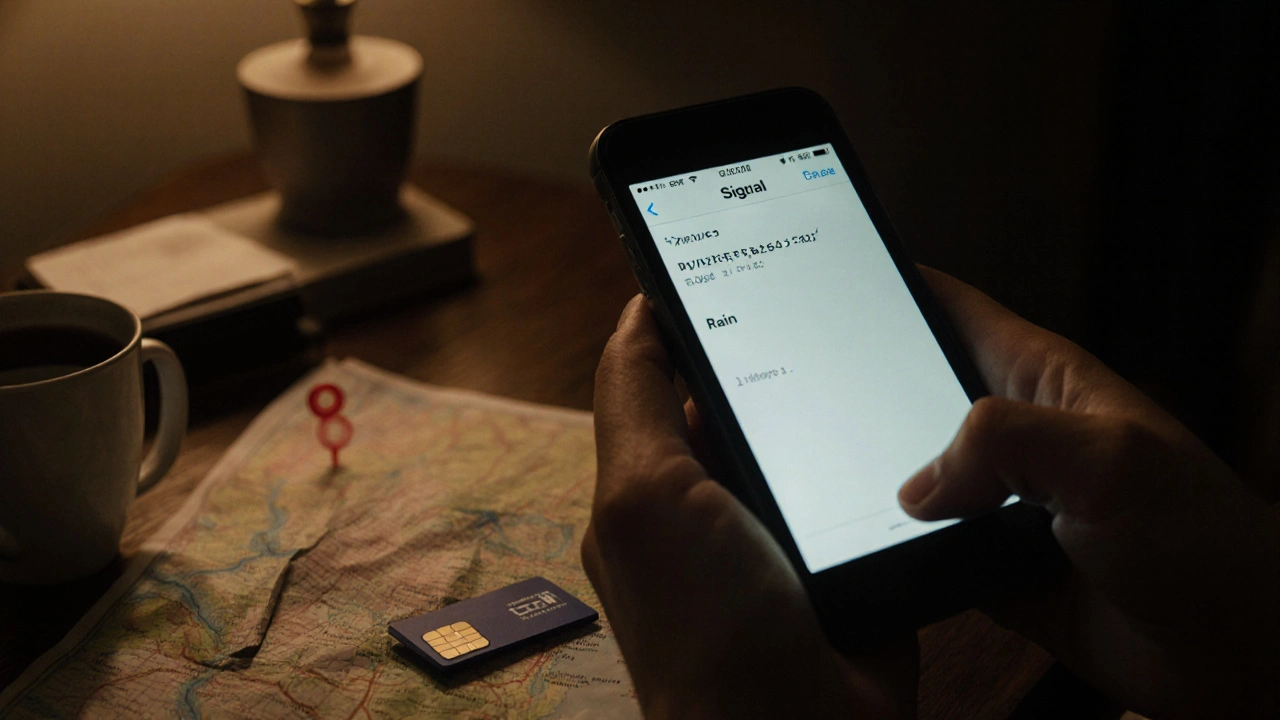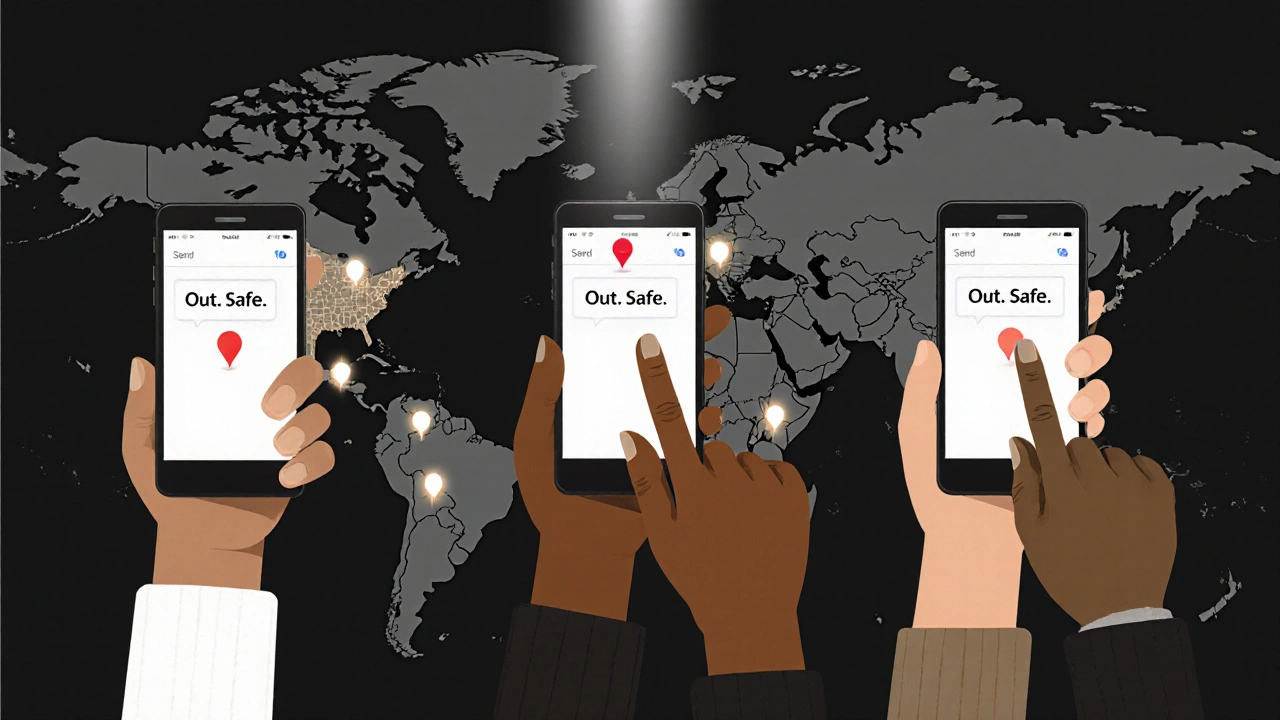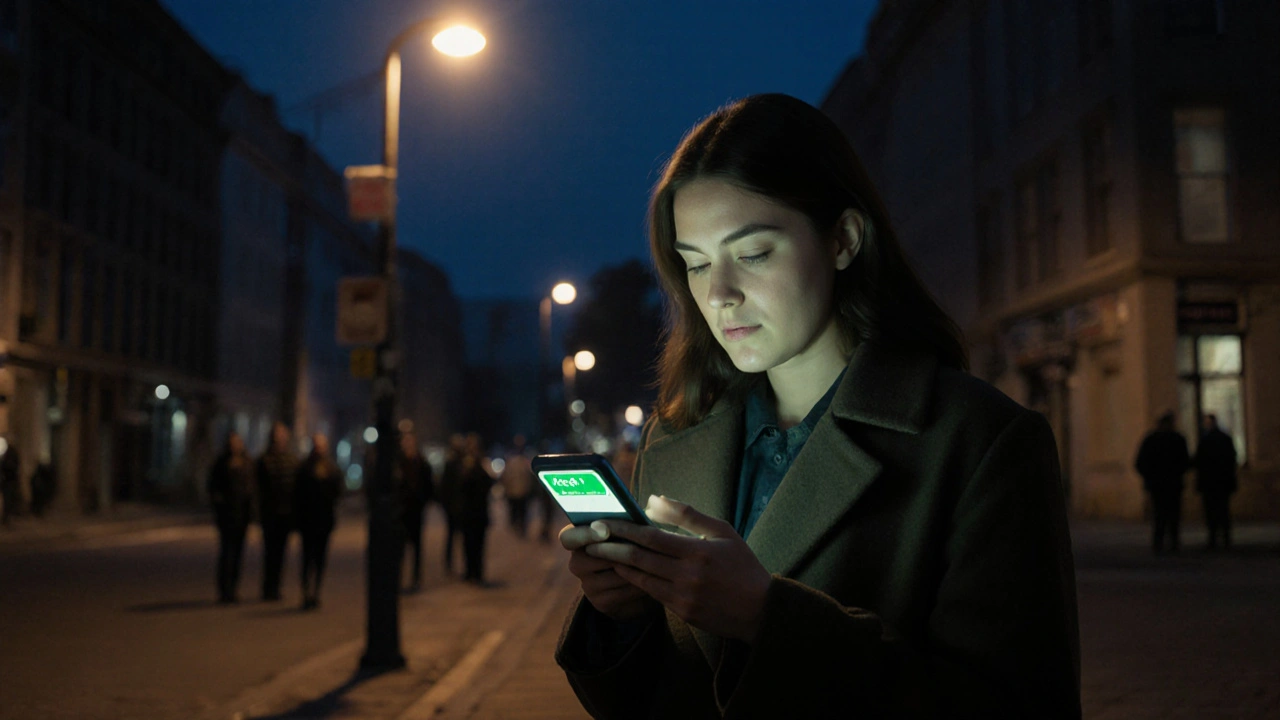When you work alone at night, in unfamiliar places, with strangers coming and going, safety isn’t optional-it’s built. For many sex workers, that safety doesn’t come from police or apps or policies. It comes from other people who’ve been there. It comes from a simple text message: "I’m at the address. Everything’s good." And from someone replying: "I’ve got you."
Why Buddy Systems Work When Other Systems Don’t
Police don’t always protect sex workers. Landlords kick them out. Apps ban them for breaking terms they never agreed to. Clients lie. Scammers pose as clients. Some cops demand sex instead of offering help. So sex workers built their own networks-quiet, reliable, and rooted in real trust.These aren’t fancy apps with logos. They’re WhatsApp groups. They’re phone trees. They’re neighbors who know your routine. In Melbourne, a group of independent workers started a rotating check-in system in 2021. Every time someone leaves for an appointment, they text a code: "A1 - Green" means safe, "A2 - Red" means danger, and if no message comes in after 15 minutes, someone calls the police or shows up at the door.
It’s not about surveillance. It’s about accountability. The system works because everyone in it has been violated, threatened, or ignored by formal systems. They know what silence looks like-and they refuse to let it happen to someone else.
How Check-Ins Actually Save Lives
A check-in isn’t just a message. It’s a rhythm. A promise. A lifeline.Here’s how it plays out in real life:
- You arrive at a client’s place. You text: "123 Main St - Green".
- Thirty minutes later, you text: "Still good".
- When you leave, you text: "Out. Safe."
If you miss a check-in, your buddy waits five minutes. Then they call. If there’s no answer, they call again. Then they send someone to the address. If the door’s locked or the lights are off, they call 000 and say: "I’m worried about a sex worker who hasn’t checked in. Her last location was 123 Main St. She’s been working there since 7 PM."
In 2023, a worker in Adelaide went silent after a check-in. Her buddy called the police. Officers arrived to find the client holding a knife. The worker had locked herself in the bathroom. The client was arrested. The worker was shaken but alive. She didn’t call 000 herself. She didn’t trust them. But she trusted her buddy.
The Tools They Actually Use
Forget the big-name apps. Most sex workers avoid them because they’re monitored, logged, or used to report them. Instead, they use tools that leave no trace:- Signal - Encrypted, no cloud backup, no metadata. Used by 78% of workers surveyed in a 2024 peer study.
- Prepaid phones - Bought with cash, no ID needed. Often shared between workers in a group.
- Google Maps location sharing - Turned on only for the duration of the appointment. Shared with one trusted contact.
- Code words - "Coffee" means "I need help," "Tea" means "I’m leaving early," "Rain" means "Client is violent."
One group in Sydney uses a simple trick: they text the same phrase to three people at once. If one person doesn’t respond, the other two know something’s wrong. It’s redundancy built into human behavior.

Who’s in the Network?
These networks aren’t random. They’re built on experience, not luck.Most are led by workers with five or more years of experience. They’re the ones who’ve seen the worst and still show up. They’re often older, quieter, and more cautious. They don’t post on social media. They don’t want attention. But they know every name, every address, every red flag.
Some networks include:
- Former sex workers who now work in harm reduction
- Trans workers who’ve been targeted by violence and now protect others
- Immigrant workers who don’t speak the language but know the streets
- Workers who’ve been trafficked and now help others avoid it
There’s no membership list. No sign-up form. You don’t apply. You earn trust by showing up-for someone else’s check-in, for a ride home, for a coffee after a bad night.
What Happens When the System Breaks
It doesn’t always work. Sometimes, someone doesn’t check in because they’re dead. Sometimes, the buddy is too scared to act. Sometimes, the police show up and arrest the worker instead of the client.But even when it fails, the system still saves lives. In 2022, a worker in Brisbane disappeared. No one knew where she was. A week later, her body was found. Her network didn’t fail because they didn’t try. They tried every night for seven days. They drove past her last location. They called every clinic. They posted flyers. They kept asking: "Has anyone seen her?"
That’s the thing about these networks: they don’t promise perfection. They promise presence. They promise that no one dies alone because no one was looking.

How to Join or Support a Network
You don’t need to be a sex worker to help. But you need to understand the rules:- Don’t ask for names. Don’t ask for locations. Don’t ask for details. Trust is fragile.
- If you’re a friend or ally, learn the check-in codes. Know what "Red" means. Know when to call 000.
- If you’re a service provider-health worker, lawyer, shelter staff-don’t report people unless they ask. Your job is to protect, not punish.
- If you’re a client: don’t pressure someone to skip their check-in. Don’t act offended if they ask you to wait while they text their buddy. That’s not suspicion. That’s survival.
There’s no formal training. No certificate. But if you’ve ever waited up for someone who works late, if you’ve ever sent a text just to say "you’re not alone," you’ve already done the work.
It’s Not About Rescue. It’s About Respect.
People talk about "saving" sex workers like they’re victims waiting to be rescued. But the truth is, they’re already saving themselves. They’ve built systems that work better than any government program. They’ve turned isolation into community. They’ve turned fear into a shared language.They don’t need your pity. They need your silence. They need you to stop asking why they don’t go to the police. They need you to stop assuming they’re helpless. They need you to see them as people who know exactly what they’re doing-and who are doing it with more care, more courage, and more connection than most of us ever will.
The next time you hear about a sex worker who disappeared, don’t ask "why didn’t someone help?" Ask: "Who was checking in? And why didn’t they get the help they needed?"
Are buddy systems legal for sex workers?
Yes. Buddy systems and check-ins are not illegal. They’re personal safety practices. In places where sex work is criminalized, these networks operate in the shadows-but that’s because the law targets the workers, not the safety measures. The act of checking in on someone is protected under basic human rights to safety and communication. No law bans two people from texting each other to make sure they’re okay.
Can clients be part of a check-in system?
Generally, no. Clients are not trusted members of these networks. The system is built on the assumption that clients can lie, manipulate, or become violent. Even clients who seem kind can be dangerous. Workers don’t risk their safety by including clients. Some workers may share a general location with a trusted regular-but never their full routine or personal contact details.
Do these networks work in rural areas?
Yes, but differently. In rural areas, networks rely more on phone calls than texts. Workers often use landlines or prepaid phones with long battery life. Check-ins might be scheduled at set times-like 8 PM and 11 PM-because cell service is spotty. Some workers form regional groups that meet in person once a month to share updates. Distance doesn’t break the system; it just changes the tools.
What if a worker is afraid to check in because they’re being controlled?
That’s a sign of trafficking. In these cases, networks use silent signals. A worker might send a pre-arranged message like "I’m running late"-which actually means "I’m in danger." Others might use a different phone or a code word only known to their buddy. If a worker suddenly stops checking in and has no explanation, the network assumes the worst and acts. These systems are designed for coercion, not just risk.
How can I support these networks without putting workers at risk?
Don’t try to join. Don’t ask to be added. Don’t share their methods publicly. Instead, support organizations that fund peer-led safety programs. Donate to groups like Scarlet Alliance or SWOP. Advocate for decriminalization. Speak up when police target sex workers for safety checks. The best way to help is to remove the barriers that force them to build these systems in the first place.
